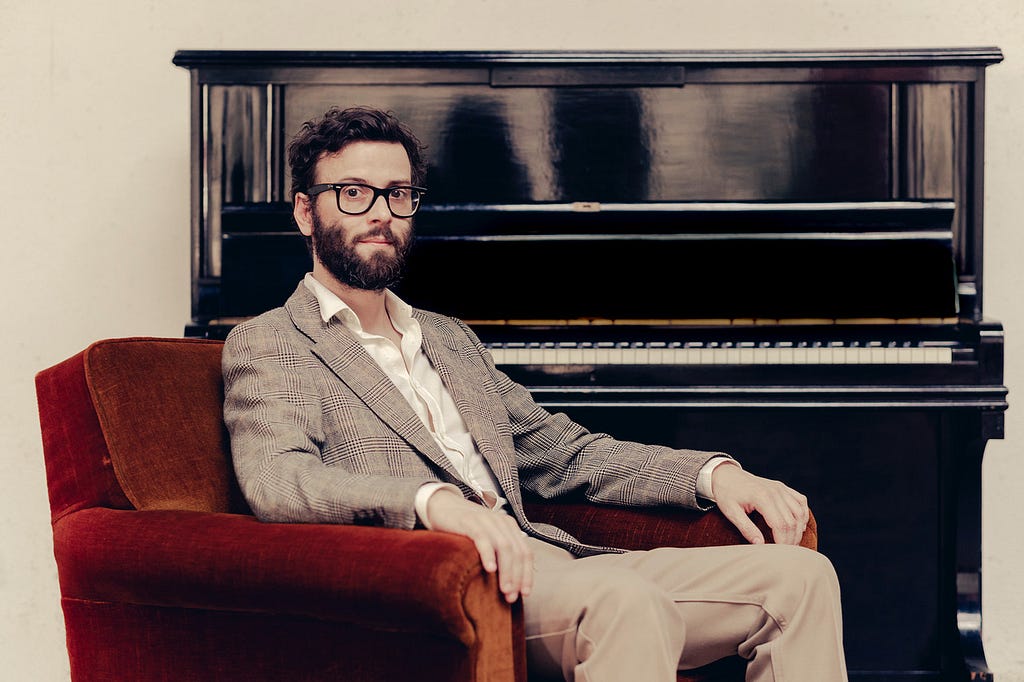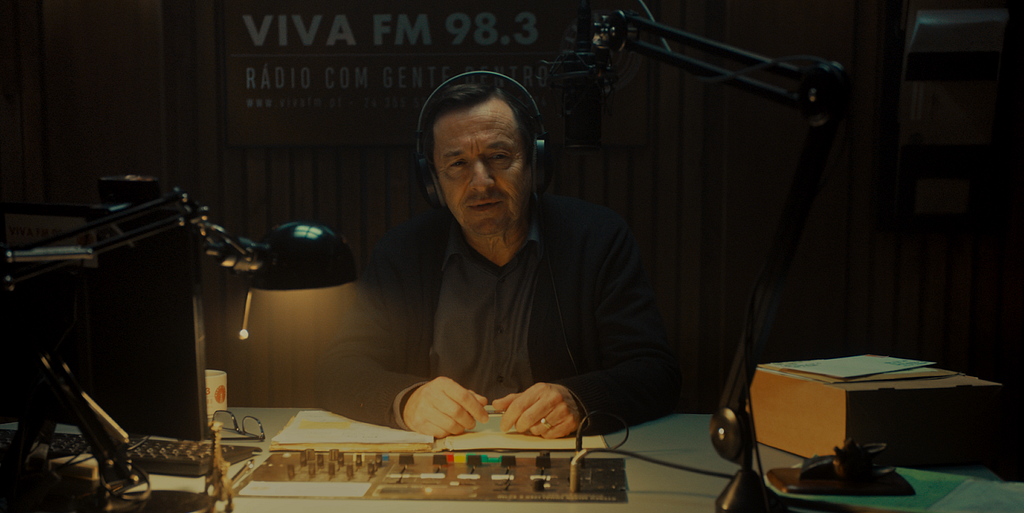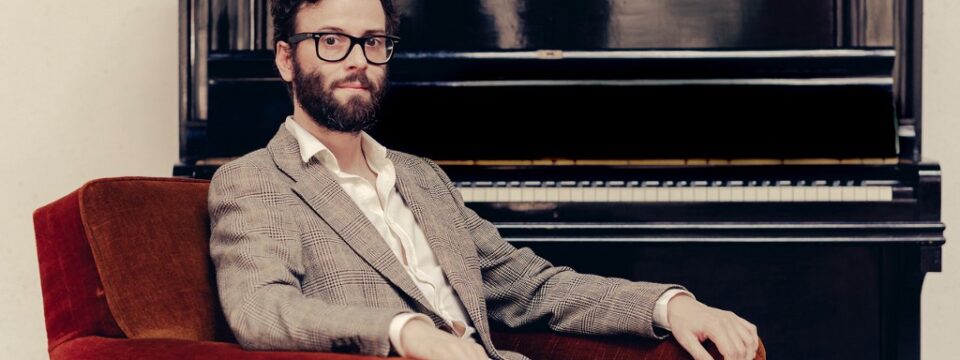Filipe Melo of THE LONE WOLF: 5 Things I Wish Someone Told Me When I First Became A Filmmaker

Don’t waste time procrastinating and thinking you are not ready — don’t question the work so much, just trust your instinct and go do things, it’s all worth it in the end.
As a part of our series called “5 Things I Wish Someone Told Me When I First Became A Filmmaker”, I had the distinct pleasure of interviewing Filipe Melo (writer) (born 1977), Portuguese musician, film director and comic book writer.
Thank you so much for joining us in this interview series! Our readers would love to get to know you a bit better. Can you tell us a bit of the ‘backstory’ of how you grew up?
I am from Benfica, a suburb of Lisbon, in Portugal. I grew up developing two passions — jazz piano and filmmaking. I rented VHS tapes on the local mall and transcribed solos from CD’s by Miles Davis, John Coltrane, Herbie Hancock, and so forth. My old aunt had a house on the countryside and we had a super VHS camera where I shot my first films — horror, of course, because we could practice the practical gore effects and weird camera angles.
Can you share a story with us about what brought you to this specific career path?
At some point I was fortunate to get a scholarship and study music in the US. I was practicing piano during the day and going to Tower Records every evening to rent films. It was my film school — anything I could find — arthouse, horror, exploitation, old musicals. When I got back home, I did my first film with some friends — a short called “I’ll see you in my dreams”. This short got some awards and went to some festivals, so I started thinking of doing it more seriously since then.
Can you share the funniest or most interesting story that occurred to you in the course of your filmmaking career?
On the very first music video I filmed, somebody came up to me and asked “Are you the director?” — I was proud of the work, and I answered a confident “Yes, I am”, fishing for a compliment. It turned out that one of the extras (who we got by an open call on the band’s webpage) was drunk and had puked in the shower of the location. I ended up my first directing gig with a mop cleaning vomit. Disgusting and humbling.
Who are some of the most interesting people you have interacted with? What was that like? Do you have any stories?
I once had dinner (on my birthday!) with one of my childhood idols, Mr. George A. Romero — and all those stories about being disappointed when meeting your heroes is bullsh**t. He was the sweetest, kindest and most encouraging film legend I could meet, and we had an inspiring dinner I will never forget and that changed my life to this very day.
None of us are able to achieve success without some help along the way. Is there a particular person who you are grateful towards who helped get you to where you are? Can you share a story about that?
I have to say my music producer, Sandra Faria — I was away from filming for many years — and she was the one who convinced me to come back to a film set and shoot a new short. I’ll forever be thankful because she reminded me of what I am.
Can you please give us your favorite “Life Lesson Quote”? Can you share how that was relevant to you in your life?
I think something like — keep doing what you love, and finish what you start. It’s relevant every day to find the energy to learn, to practice and to improve.
I am very interested in diversity in the entertainment industry. Can you share three reasons with our readers about why you think it’s important to have diversity represented in film and television? How can that potentially affect our culture?
It’s very, very relevant. The other day, in a talk with non-filmmakers , I asked one of them to name 10 female or binary directors. They couldn’t. The same with female composers, who are immensely less acknowledged than males. It helps to have role-models to believe that we can achieve whatever their dreams are. I had mine, growing up in the nineties they were mostly white males: it’s time for a radical change, it’s time for varied representation — gender, gender identity, race, creeds — even if it means that the previously privileged white male elite feels it in its skin what it’s like to feel discriminated against by having their opportunities taken.
What are some of the most interesting or exciting projects you are working on now?
I have a parallel career as a comic book writer and my latest book, called “Ballad for Sophie” just got sold to Universal Pictures for development. That made me really happy and I’m excited, hoping that this actually turns into a show.
Which aspect of your work makes you most proud? Can you explain or give a story?
In Portugal, everything felt really difficult a few years ago — working as a musician, doing films, writing comic books. I am just proud that I practiced and that I love cinema so much that I actually can do this for a living nowadays.

Ok super. Here is the main question of our interview. What are your “5 things I wish someone told me when I first started” and why. Please share a story or example for each.
– Don’t waste time procrastinating and thinking you are not ready — don’t question the work so much, just trust your instinct and go do things, it’s all worth it in the end.
– Always remain curious — curiosity will always keep your inner child alive and your flame burning.
– Kind people are the best to have around. If they’re incredible professionals, but unkind people, run away.
– Listen to the small stories, they make better screenplays.
– Abandon ego, it’s an enemy of the creative process.
When you create a film, which stakeholders have the greatest impact on the artistic and cinematic choices you make? Is it the viewers, the critics, the financiers, or your own personal artistic vision? Can you share a story with us or give an example about what you mean?
I believe the personal artistic vision — (along with the creative team’s you work with) is the most important voice to listen to. If it’s strong and honest, the viewers, the critics and the financiers will eventually connect. I don’t know if any other way around works.
You are a person of great influence. If you could start a movement that would bring the most amount of good to the most amount of people, what would that be? You never know what your idea can trigger. 🙂
I wouldn’t even know where to begin — I think there are enough resources to improve access to health and education for everyone. Health and education. Everyone should be entitled to a good life, and to have the ability to dream.
We are very blessed that some of the biggest names in Business, VC funding, Sports, and Entertainment read this column. Is there a person in the world, or in the US whom you would love to have a private breakfast or lunch with, and why? He or she might see this. 🙂
In film — Miranda July, she thinks different, she is magical. Her creativity comes from a special planet that I wish I could travel to. A true contemporary artist and visionary. In music, Michael Giacchino, such an inspired and inspiring film composer and producer. A master of all musical languages. I love his work both as a musician and as a director.
How can our readers further follow you online?
Well, I do have instagram — find me at @_filipemelo_
This was very meaningful, thank you so much! We wish you continued success!
Filipe Melo of THE LONE WOLF: 5 Things I Wish Someone Told Me When I First Became A Filmmaker was originally published in Authority Magazine on Medium, where people are continuing the conversation by highlighting and responding to this story.
